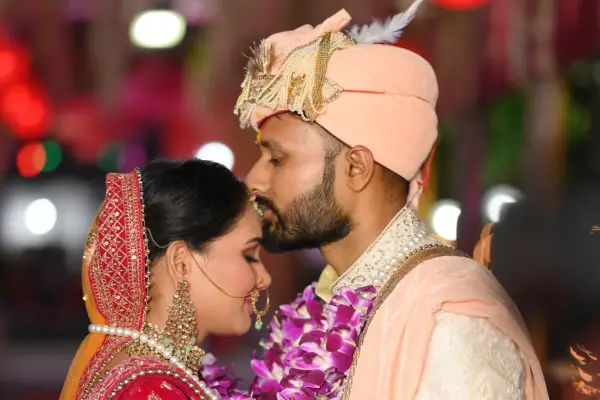Arranged Marriages in Modern Society
Arranged marriages have been a long-standing tradition in many cultures worldwide, particularly in Southern Asia, the Middle East, and parts of Africa.
Despite modernization and increased emphasis on individualism in much of the world, arranged marriages still persist and remain the norm for millions globally.
While arranged marriages may seem archaic or regressive through a Western cultural lens, they offer several potential benefits for those who participate in them.
When done thoughtfully and with care for the needs and desires of both spouses, arranged marriages can provide stability, financial security, strong family support systems, and surprisingly good compatibility between partners.
In this article, we will analyze several of the potential advantages arranged marriages can offer couples and families. Far from the forced or child marriages that also still impact parts of the developing world, consensual arranged marriages between adults continue to thrive because they’ve adapted to modern cultural norms and expectations.
Understanding the nuances and evolutionary trends of arranged marriages allows us to better understand their role globally, including the many ways they can foster healthy families and relationships in both traditional and modern contexts.
Tradition and Cultural Preservation
One of the central appeals of arranged marriages in cultures where they are the norm is that they uphold vital social and familial traditions. Marrying someone approved by one’s parents and trusted elders demonstrates care and consideration for their wisdom and blessings.
This is especially valued in close-knit communities, where bringing an unknown outsider into the family could be seen as disruptive or dishonorable.
Unlike romantic marriages, which privilege personal desire above all else, arranged marriages give more influence to parents, grandparents, and other relatives when determining a suitable life partner that will integrate well into the family.
This emphasis on familiarity acts as a conduit to pass along cultural knowledge and identity to future generations. Arranged marriages preserve heritage by thinking beyond just the couple to consider what’s best for the family, lineage, or cultural group long-term.
In denying the self-focused nature of romantic love that has come to dominate much of Western culture, arranged marriages keep families and community at the heart of one of life’s most important decisions.
For young people seeking connection to their roots and supportive relationships that extend beyond just their spouse, arranged marriages offer meaningful continuity of custom across generations.

Family Involvement and Support
Related to their communal nature, arranged marriages contain an implicit guarantee of long-lasting family support and involvement between not just the couple themselves but both extended families.
Because parents and other relatives are so instrumental in establishing the partnership, they tend to remain highly invested in its success.
This often translates into stronger emotional support and a safety net during challenging times when compared to romantic marriages, where families may be less familiar with the new spouse.
Financial assistance, childcare help, housing, mentorship and other forms of nurturing are also more readily available in many arranged marriage contexts because of kin financial planning and the stability provided by previous vetting and approval on both sides.
In cultures where multi-generational households are common, these structural supports via extended family are baked into the framework of arranged marriages.
While the modern Western emphasis on individualism has positives, it lacks the social interconnectedness and responsibility toward others that arranged marriages cultivate by their very design.
This community orientation leads to less isolation and, therefore, higher marital satisfaction and lower divorce rates, according to research across cultures practicing arranged coupling.
Compatibility Through Due Diligence
A common myth about arranged marriages is that they entirely ignore personal compatibility or the romantic desires of those getting married. In reality, while physical attraction or romantic notions often develop after marriage, modern arranged couplings value baseline compatibility across several important areas.
Unlike whirlwind romances based on superficial factors like fleeting passions or short-term circumstances, parents vet potential arranged spouses for their children by getting to know families through trusted social networks.
Multi-layered consideration of religion, caste, ethnicity, education level, career prospects, andalignment on major life goals help ensure matches that work not just presently but for the long haul. While romantic attraction can fade, shared values and aspirations help sustain couples through life’s ups and downs in marriage.
While arranged setups are not forced on unwilling participants, both potential spouses’ input is incorporated so all feel it could lead to a respectful, caring partnership.
The emphasis remains on assessing compatibility more holistically by including the insights of elders rather than just the capriciousness of romantic emotions alone.
This process echoes the diligence involved in making major life decisions in other domains like choosing a career or buying a home. A bit less spontaneity allows for a bit more practical wisdom.

Financial Security
Historically, arranged marriages offered the benefit of cementing family alliances, leading to better financial prospects for nuclear and extended family units. This remains an important consideration today, especially given the uncertain economic times globally despite modernization.
Arranged marriages rely on tried and true matchmaking methods within or across compatible socioeconomic groups. Whether through formal avenues like trade associations, religious or ethnic networks, or more informal neighborhood ties, matchmakers unite those of similar earning potential.
This is especially essential in societies with dowry customs, where marriages dictate family inheritance and property ownership. Elites tend to bolster social capital via exclusive circles where arranged pairings consolidate wealth, resources, careers and family names across generations.
While notions of romantic love have become ostensibly classless, economic parity remains a pivotal anchor for marriages everywhere. The financial stability and family support structures inherent to arranged couples can give them an advantage over those who wed solely based on attraction without considering deeper compatibility factors.
Modern Evolutionary Trends
Instead of arranged marriages being seen as relics of traditionalism with no place in contemporary society, they’ve adapted progressively alongside cultural shifts toward more individualism and women’s empowerment.
While constraints rightly remain on forced child marriages, certified adult arranged marriages now incorporate more space for vetting, compatibility confirmation, and getting to know one’s prospective spouse before official vows.
Multi-phase courtship processes are now common in many communities, where initial introductions by family give way to regular chaperoned outings or direct conversations to discern alignment.
This allows couples to pose important questions on life visions, goals, and values to determine if there is a willingness for cooperation, respect, and partnership before committing forever. Female candidates especially have more leverage to continue searching until they feel sufficiently secure they’ve found someone suitably matching in nature and aspirations.
Furthermore, while earlier generations focused almost wholly on the financials or family names being united, modern arranged marriages incorporate more room for chemistry, rapport, and attraction to develop organically once the official union is sealed. Romantic love within arranged couplings is seen as a bonus rather than the sole prerequisite.
Intellectual and social affinity is first ensured, while caring fondness ideally blossoms once building a life together.
This balanced approach allows arranged marriages to retain traditional strengths like family support and financial security while adapting sensitively toward more individual mate selection preferences. It symbolizes the preservation of cherished customs amidst progressing cultural viewpoints.
Conclusion
Far from the regression toward paternalistic loss of agency that critics assume, today’s arranged marriages blend the best of old and new.
Tradition and community ties anchor marriages in rich intergenerational wisdom while modern personalized vetting and courtship help ensure mutual care, cooperation and linking of promising futures between two families.
This modernized approach to arranged coupling contains much to inspire all marriages regardless of cultural origin. Prioritizing pragmatic life vision alignment alongside trust in elder guidance could also benefit romantic marriages.
By learning from the adaptive resilience of evolving arranged practices, perhaps the risks of isolation, incompatibility and instability in modern unions everywhere could be mitigated.
In a world where traditions often erode quickly under Western-centric modernity, retaining family and community connection remains essential for psychological well-being and human dignity. Arranged marriages demonstrate one way to balance duty to self and to one’s roots.
Their persisting relevance reminds us that rational deliberation has as much to offer marital success as pure emotion – and blending the two sensitive to context could be key to long-term relationship fulfillment everywhere.


